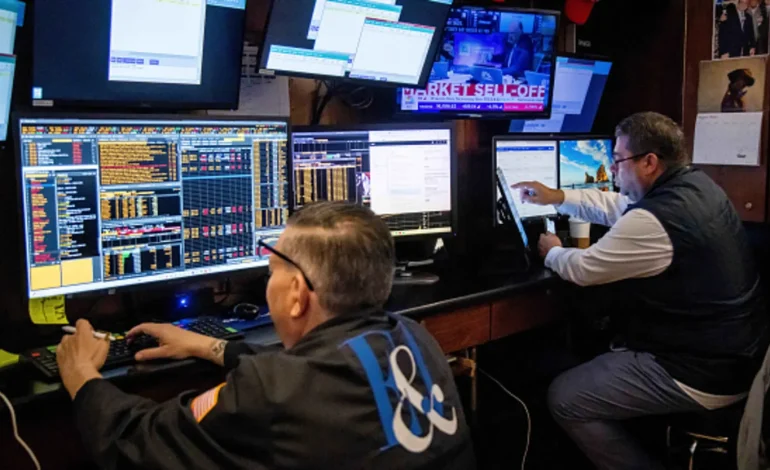Stock futures remained relatively stable on Wednesday as investors prepared for the release of January’s consumer inflation report, a key economic indicator that could influence future Federal Reserve policy.
Futures linked to the S&P 500 hovered just above the flatline, while Dow Jones Industrial Average futures edged down by 39 points, or about 0.1%. Meanwhile, Nasdaq 100 futures rose by 0.2%.
The consumer price index (CPI) report, set for release at 8:30 a.m. ET, is expected to show a 0.3% increase from December and a 2.9% rise compared to the previous year, according to Dow Jones estimates.
Wall Street analysts have raised concerns that inflationary pressures could persist, especially with potential policy changes under President Donald Trump. Some economists argue that Trump’s proposed tariffs could counteract recent disinflationary trends, though others believe the economy remains on a solid footing.
Ed Yardeni, president of Yardeni Research, urged investors to focus on broader economic fundamentals rather than political developments.
“We tend to focus on the macroeconomic policies … but the reality is that the rest of us working stiffs are doing an amazing job of keeping the economy going despite Washington,” Yardeni said Tuesday on CNBC’s Power Lunch.
Federal Reserve Chair Jerome Powell is also scheduled to testify before the House Financial Services Committee on Wednesday. During his Senate Banking Committee appearance on Tuesday, Powell emphasized that policymakers were in no rush to cut interest rates, given the economy’s resilience.
Recent data suggests inflation remains somewhat persistent. January’s CPI report is expected to confirm a 2.9% year-over-year increase, matching December’s figure. Core CPI, which excludes volatile food and energy prices, is projected to have risen 3.1% annually, slightly lower than December’s 3.2%.
Economists have also pointed to the potential impact of the “January effect”, where consumer prices reset at the beginning of the year, potentially leading to stronger-than-expected inflation data.
“It’s unlikely to be a big deal, but it could cause an upside surprise,” said Joe Brusuelas, chief economist at RSM.
The Federal Reserve has been cautious about further rate cuts after reducing borrowing costs by a full percentage point between September and December. Officials have signaled that inflation must show clearer signs of cooling before additional cuts are considered.
Beth Hammack, president of the Federal Reserve Bank of Cleveland, reinforced this sentiment on Tuesday, stating:
“We have made good progress, but 2 percent inflation is not in sight just yet.”
Several stocks saw notable premarket activity on Wednesday:
- CVS Health surged 8% after reporting better-than-expected earnings, posting an adjusted $1.19 per share on revenue of $97.71 billion, exceeding analysts’ forecasts.
- Super Micro Computer jumped more than 10%, despite cutting its full-year revenue forecast, as its CEO reassured investors about the company’s outlook.
- Upstart Holdings, an AI-driven lending platform, surged 26% after issuing stronger-than-expected first-quarter guidance.
While investors await the CPI report, broader economic concerns remain. Inflation remains well above pre-pandemic levels, with rising costs in sectors such as healthcare and transportation continuing to pressure consumers.
Trump’s economic policies—including potential tariffs and immigration restrictions—could influence inflation trends in the coming months. However, his administration has also expressed confidence that measures to reduce energy costs will help ease inflationary pressures.
CNBC, the Wall Street Journal, and the Washington Post contributed to this report.








